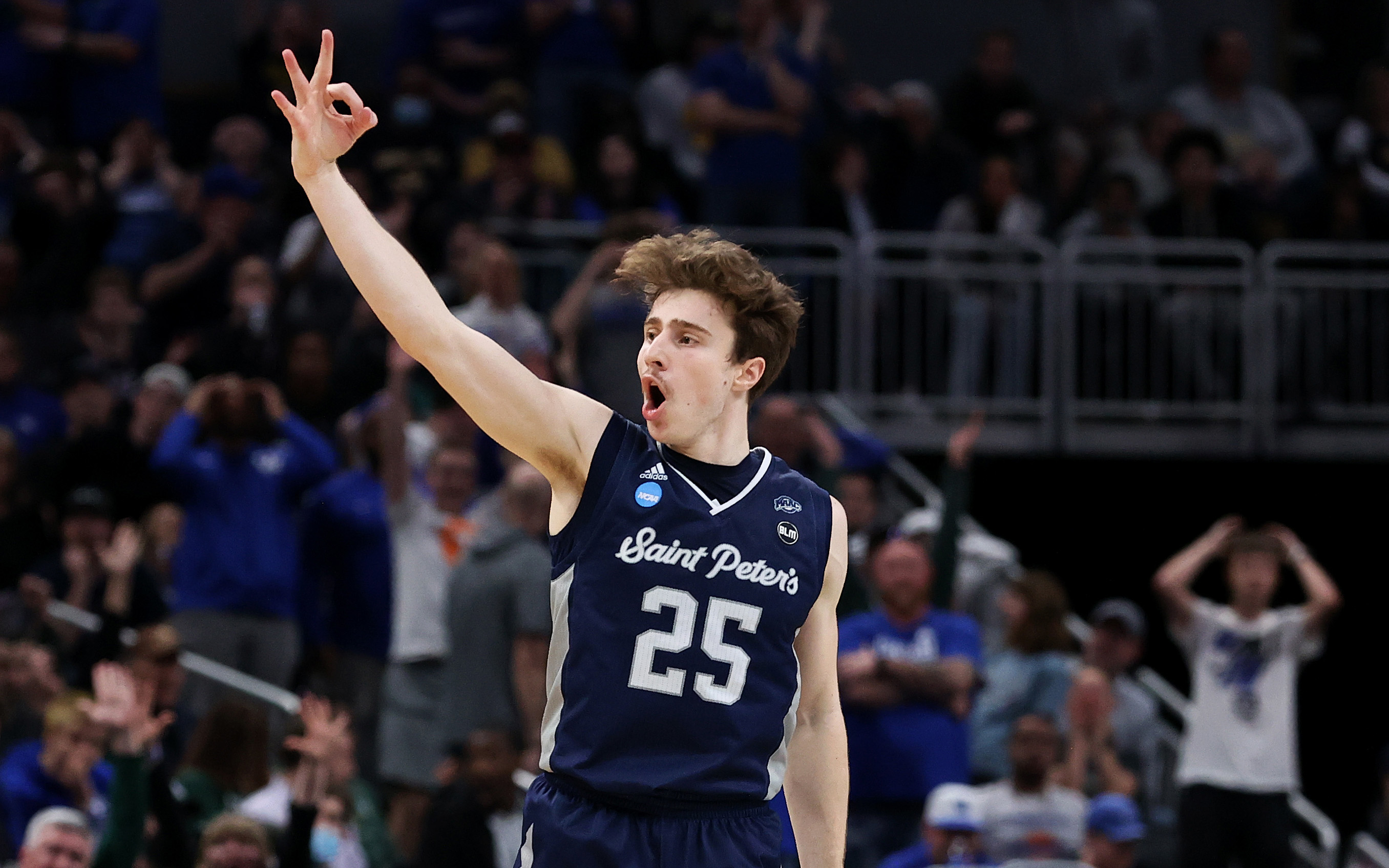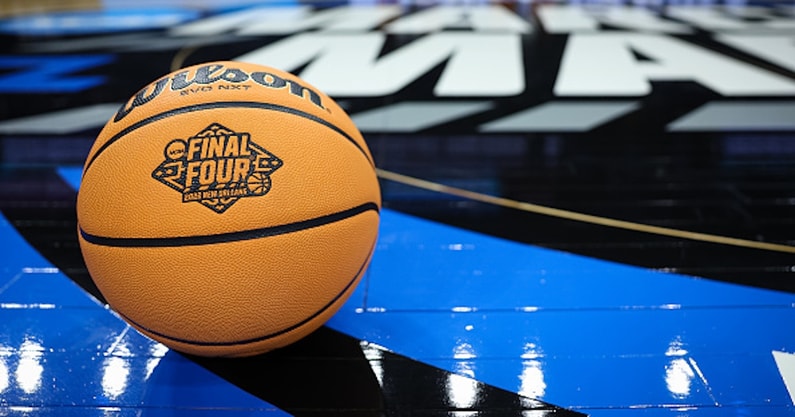The Impossibility of March Madness Bracketology
March 17, 2023
March Madness, or the “Big Dance,” is one of the most popular sporting events in the United States, attracting over 20 million viewers to its championship game alone. It is a single-elimination tournament of 64 NCAA college basketball teams, fighting for a title that gains everlasting legacy for the players, coaches, and team. As the average college basketball players range from age 18-22, it’s an energetic competition with a lot of heart. Young challengers and their brotherhood of teammates hope to reign victorious in a once-in-a-lifetime opportunity, and maybe even get noticed by the NBA. Alumni and students root for their own colleges to make it far, looking for bragging rights over rival schools and a position on the coveted list of tournament winners. However, the most exciting part might not even be the tournament games themselves, but the annual competition to create a perfect bracket.
Bracketology is the word coined for “the activity of predicting the participants in and outcomes of the games in a sports tournament, especially the NCAA college basketball tournament.” Sports fans all across the country participate to try and defy the odds by creating a bracket that guesses every single tournament game correctly. The reason it’s so popular? Nobody has ever done it.
There are 67 games in a March Madness bracket. The first four of them (cleverly named the first four) do not count, as they are just the final decider for which teams are able to compete. With those complete, a participant in the bracket challenge would need to get all 63 games correct, with no mistakes across the board. The 63 games are split into six rounds—the Round of 64, the Round of 32, the Sweet 16, the Elite 8, the Final Four, and the Championship—meaning a team needs to win all 6 games in a row(seven if in first four) to secure the national title. The bracket works by separating the 64 teams into 16-team regions, with each team seeded 1-16 in their respective region. The seeding and which teams get to compete is determined by a selection committee, which makes decisions based on the feats and successes of the team during the regular season. In the first round, the 1-seed will play the 16-seed, the 2-seed will play the 15-seed, and so on. In the second round, the winner of the 1-seed against16-seed game will play the winner of the 8-seed 9-seed game. This pattern goes on until one team is left in the region, punching their ticket to the Final Four. With that description in mind, let’s move to the numbers.

The statistics of getting a perfect bracket are astronomically difficult to overcome. In fact, if one were to coin flip the outcome of every game in the tournament, the odds to get a perfect bracket would be 1 in 9,223,372,036,854,775,808. Yikes. For reference, it is estimated that there are around 3 trillion trees on the planet Earth. If there was a tennis ball hidden in the leaves in one tree on Earth, the chances to guess the correct tree would be 3 million times greater than creating a perfect bracket.
However, those numbers become relatively more manageable as one factors in data and sports knowledge. For example, the knowledge that a 1-seed will realistically never lose to a 16-seed already drastically increases the odds of perfection. Chances increase even more if the person filling out the bracket has a reasonable level of college basketball knowledge, at least to a certain extent. There are many analysts for sports channels that have watched every game, know every player, every coach, every trend—as well as a handful of dedicated fans who also retain an impressive amount of knowledge. However, none of these “experts” have ever come close to perfection. In fact, most winners of the challenge are random people picking teams they simply “like more.”

So with all this knowledge, why has nobody ever gotten it? Upsets. March Madness is infamous for its multitude of upsets that occur every tournament. Huge college names that dominate the court will somehow lose to a small college that has never been heard of before. With these unlikely picks, people’s brackets will never be perfect. It is simply impossible to pick every single upset that will happen, not only in the first round, but all the way to the championship. A great example is last year’s 2022 NCAA March Madness tournament, when a small school from our home state, New Jersey, shocked everyone. 15-seed Saint Peter’s was set to play 2-seed Kentucky, commonly regarded as one of the best college basketball schools of all time. The picks were 97% in favor of Kentucky, with just a slim 3% picking Saint Peter’s to advance. In fact, more people had chosen Kentucky to reach the Final Four (30%) than Saint Peter’s to win just one game. And even if you happened to luck out by choosing that upset, you would have been stumped by Saint Peter’s run all the way to the Elite 8.
So that begs the question: will anyone ever get the perfect March Madness bracket? Likely not. The odds are just too impossible, and will probably never be overcome. However, there is never a zero percent chance, so maybe a miracle could happen not on the courts of the tournament, but on the computer screen of a hopeful bracketologist.


















































































































































